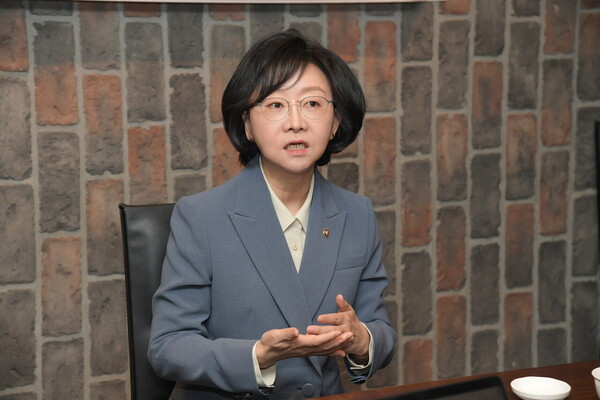“We understand that there are concerns about the regulatory innovation promoted by the Ministry of Food and Drug Safety (MFDS), but the purpose of the regulatory innovation is to make the fence surrounding safety stronger, not to break it. We will not stop with last year’s regulatory innovation 1.0, but will continue with 2.0 and 3.0.”


 



So said Oh Yu-kyoung, minister of food and drug safety, expressing her ambitions during a meeting with healthcare news-covering journalists on Tuesday. She was mentioning concerns raised by some civic groups and patient advocates who criticize the MFDS’ deregulatory moves and call them “pro-industry.”


Oh also shared her impressions of a recent visit to the U.S. FDA and a drug rehabilitation center in March.


It has been 10 years since the MFDS was established but it was the first time the leader of the MFDS met with the head of the U.S. FDA, she said.


“It is meaningful in that it opened the way for dialogue and cooperation between the two,” she added.


During her visit to the U.S., the MFDS organized a bio-digital health symposium with the Korean American Society in Biotech and Pharmaceuticals (KASBP) to share trends in the development of innovative products and discuss support for globalization.


Elevar Therapeutics, a U.S. subsidiary of HLB, participated in the symposium and presented clinical results.


The MFDS plans to organize a global advisory group of foreign experts to help Korean companies enter the global market.


“There has been a lack of experts for companies to seek advice. There is no reason not to bring in global experts to help Korean products enter the global market. For example, we are planning to recruit FDA law experts as advisors and seek advice when needed,” said Oh.


Oh also spoke about his visit to the Samaritan Daytop Village. The organization was founded in 1963 and is a private drug treatment and rehabilitation organization with more than 60 facilities in New York State.


“We often question whether drug addicts can be treated or rehabilitated, but it was an opportunity to meet people who are actually leading their daily lives through treatment and rehabilitation,” Oh said. “We plan to establish a communication channel in the future, and Samaritan Daytop Village officials will attend this year’s World Drug Day event.”


In addition to reflecting on her first anniversary of office, Oh introduced the MFDS’ regulatory innovation efforts.


“It has been almost a year since I started my term on May 27 last year. Two months later, on August 11, we announced the 100 top regulatory innovation tasks. We promised then that we would listen to the public’s voice and that this regulatory innovation would be the beginning, not the end,” Oh said.


Oh expected that the ministry would be able to report ‘Regulatory Innovation 2.0’ around June after holding discussions with various associations and organizations in April and May and holding public debates.


“Last year’s Regulatory Innovation 1.0 came from within the MFDS, and this time, we are trying to hear the voices of the industries,” she said.


When asked if the task of collaborating with other government departments is included, Oh said, “As we organize the policy agenda, there will be a need to collaborate with related ministries.”


In response to a question about whether the MFDS’s regulatory innovation is “pro-industry,” Oh said, “Regulatory innovation is not to break the safety fence, but to make the fence stronger.”


The ministry is promoting global regulatory harmonization, and aligning with the global regulatory level means providing better medicines to Korean people, she added.


She said regulatory innovation includes embracing new technologies in fast-moving sectors like digital health and medical devices.


“The environment or the terrain has changed, so the traffic light doesn’t have to remain red.”


Commenting on the approval of Aimmed’s Somzz as the first digital therapeutics (DTx) device in Korea this year, Oh said, there are still discussions on insurance prices with the National Health Insurance Service and the Health Insurance Review and Assessment Service.


However, the Ministry of Health and Welfare is in a position to accelerate the time when people can benefit from innovative treatment, and President Yoon Suk Yeol has ordered a speedy digital transformation, she said.


“With this government policy, we expect to shorten the time until actual use.”










